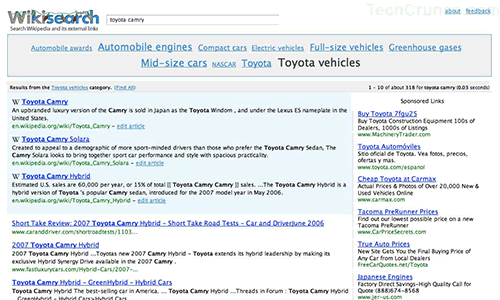Wikipedia to Launch Google Rival
Considering that Wikipedia founder Jimmy Wales used to run erotica galleries and a babe blog, and currently runs a babe search engine, I actually trust the guy to build an accurate general search engine. It takes a special kind of honesty to show the world its own sensuality.
Mr Wales has begun working on a search engine that exploits the same user-based technology as his open-access encyclopaedia, which was launched in 2003.
The project has been dubbed Wikiasari — a combination of wiki, the Hawaiian word for quick, and asari, which is Japanese for “rummaging search�.
Mr Wales told The Times that he was planning to develop a commercial version of the search engine through Wikia Inc, his for-profit company, with a provisional launch date in the first quarter of next year.
Search results will include tag based navigation, the top three results will be wikipedia content, and the remaining results are determined by sites wikipedia considers to be “reputable� because they are external reference links from wikipedia pages.
Since all search results will be tied to wikipedia, either directly by linking to wikipedia content or because the sites are linked to from Wikipedia, real people will eventually be determining all search results and rankings within Wikiasari. The search engine will be opensource, and the index will be available under a GFDL. Wikia will operate the master version of the index, but others are free to take it under the terms of the GFDL.
Wow, free search engine code and index. You could build all sorts of custom search services on those. With Wikipedia’s popularity behind the project, expect an explosion of plugins and forks once they’re out. I’m a huge Google fan, but people who can’t wrap their brains around Google’s algorithms might prefer a human-edited version of the wisdom of the crowds.
I’m staying with Google for its all-inclusive crawling power, and recommending Wikiasari to people who need the benefit of SERPs backed by human editors. The latter is still a huge market.
(Via Hugh MacLeod and Michael Arrington.)
|
Like This Post: Share This Post: |




